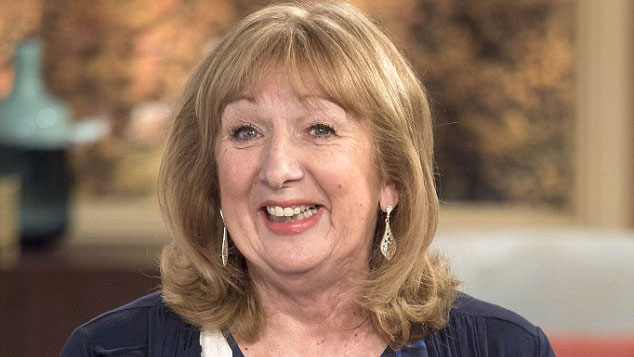Can Rhinomed help the world get a good night’s sleep?

Pic: Oscar Wong / Moment via Getty Images
Jenny Chapman snores like a chainsaw, literally.
At 111 decibels, she has the title of Britain’s Loudest Snorer, one decibel higher than a chainsaw.
Desperate, she enlisted the help of Rhinomed’s (ASX:RNO) Mute anti-snoring device to save her relationship.
As Rhinomed CEO Michael Johnson says: “We firmly believe that improving the way people breathe will allow them to sleep better and wake up feeling better. And waking up feeling better makes the world a better place!”
Sleep is a big topic at the moment.
Last week a new Deloitte Access Economics report claimed 40 per cent of Australians don’t get enough sleep, costing the economy $66.3 billion a year.
Can Rhinomed’s anti-snoring device help?
Let’s take a closer look.
What is it?
Mute looks like something a synchronised swimmer would wear on their nose — but it actually does the opposite.
It’s worn inside the nose where it expands the nostrils to increase the breathing area, reducing vibrations in the nasal area which can lead to snoring.
Mute also works on congested or obstructed nasal passages, such as deviated septums and swollen sinuses encountered during pregnancy.
Rhinomed’s Turbine is a similar product designed for exercise, and increases the airflow a bit more than the Mute.
Does it work?
Dr Maree Barnes, a respiratory and sleep medicine physician from the Australasian Sleep Foundation, keeps an eye on sleep aids available through pharmacies.
She says Mute might help with snoring — if you can manage to keep it in your nose all night.
“Studies show a reasonable improvement of airflow using these nasal stents – and this can certainly stop snoring in some people.
“However it is important to realise that snoring can be a symptom of sleep apnoea which is a very serious condition, and needs to be treated by a specialist.”
These products are not exactly known for treating the underlying problem, and we can’t help but wonder if the Mute will end up in the draw next to the nasal strips, throat sprays and the acupressure rings.
Snoring problems really should be treated by professionals — Obstructive Sleep Apnea can be a dangerous condition.
The Australasian Sleep Foundation is running training programs to educate pharmacists on snoring and Continuous Positive Airway Pressure (CPAP) treatment, where machine pumps air into the throat via a mask.
With about 40 per cent of men and 30 per cent of women in Australia suffering from snoring, treatment through the pharmacy is an excellent way to address the issue.

Is Mute it better than traditional treatments?
There are many sleep aids on the market from nasal splints to herbal supplements as well as prescription medications — all treating different types of sleeping problems.
Effectiveness of medications – both over the counter (prescribed) and herbal remedies have had many studies published in recent years, producing mixed results.
But you need a degree in science or medicine to understand how the outcomes will be relative to your own situation. Everyone’s bodies and lives are different.
Dr Barnes stresses the importance of including clinicians in interpreting medical treatment options.
However Johnson believes upcoming Rhinomed product, the IntraNasal Positive Expiratory Airway Pressure (NPEAP), will allow for market disruption due to its accessibility in cost and design.
“Because it will look very similar to the Mute, the 80 per cent of people with sleep apnoea who are not yet diagnosed may well be already familiar with our type of solution [and] will be less fearful of the solution. Therefore acceptance and adoption may be greater,” he says.
Treatment for clinically-diagnosed Obstructive Sleep Apnea is commonly via CPAP devices, which can cost $1000-$3000 for non-healthcare card holders, with financial assistance available from the treating hospital.
What does Rhinomed do well?
CPAP machines are expensive and so are specialist appointments. Sleep studies are inconvenient, and many snorers are in denial about the extent of their problem.
These insights play well for Rhinomed.
The company has forged an impressive distribution network boasting Symbion and Sigma, who represent the major pharmacy chains in Australia including Amcal, Amcal Plus, Guardian, Discount Drug Stores and Pharmacy Choice.
Worldwide, Rhinomed is distributed by 7000 outlets including Amazon, Boots pharmacies in the UK and Walgreens in the US.
The company reported $300,000 in customer receipts for the June quarter, which it conceded was “below expectations”.
Cash burn was $1.2 million, leaving $1.7 million in cash.
Rhinomed expects to spend $1.4 million in the current quarter, but “remains confident that a breakeven position will be reached during FY18”, according to its most recent report.
Shares trade around 22.5c giving it a market value of about $21 million.
In the past year, the company has been working hard on R&D, with expansion agreements signed for the US, Australia and an introduction of the Mute and Turbine products into the Asian markets through Taiwan and Hong Kong.
Investor presentations rates the US natural supplement market at $42 billion per year, with sleep remedies representing $400 million.
Marketing efforts rely heavily on influencers, with Olympians, Paralympians and this year’s Tour De France winner Chris Froome regularly seen wearing Rhinomed’s exercise product Turbine.
The Rhinomed product range is well-supported with an educational component targeted at the global interest in improving health through sleep hygiene.
This article does not constitute financial product advice. You should consider obtaining independent advice before making any financial decisions.
UNLOCK INSIGHTS
Discover the untold stories of emerging ASX stocks.
Daily news and expert analysis, it's free to subscribe.
By proceeding, you confirm you understand that we handle personal information in accordance with our Privacy Policy.








